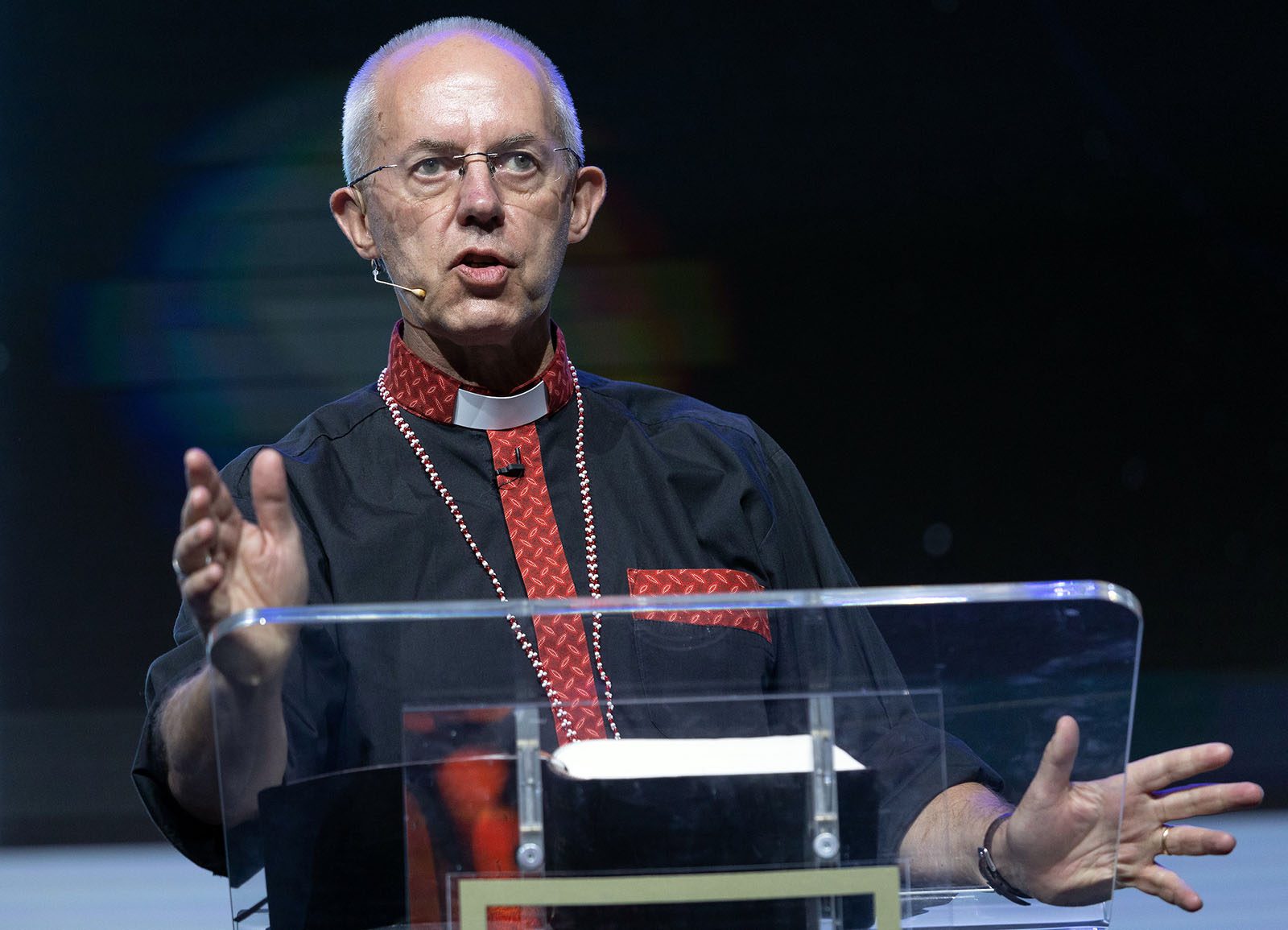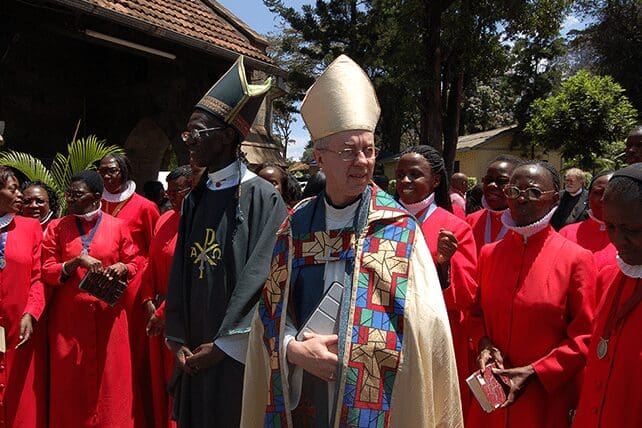LONDON (RNS) — It’s a headline that could have run at any time in the past three decades: The Archbishop of Canterbury, the primate of the Church of England and the ceremonial head of the worldwide Anglican Communion, attempts to balance conservative and progressive views on LGBTQ affirmation in the name of church unity.
For years, archbishops have sublimated their own views, knowing that challenging traditional teaching would threaten the church’s and the Communion’s existence. Not challenging it, however, has made for problems among churches in liberal democracies.
Now, this long-running story might be coming to an end.
This week, the bishops of the Church of England are meeting to finalize proposals to be submitted to a meeting in February of the governing body of the church, the General Synod, about marriage for same-sex couples. The document they will be discussing, “Living in Love and Faith,” focuses on many topics under the rubric of love and marriage, but it is same-sex relationships that are the most neuralgic.
The meeting comes as support for marriage for gay couples is growing within the church, most notably among evangelical members of the episcopate who have long opposed it. But if the bishops choose to recommend changing doctrine, they know that it will have consequences far beyond England’s shores in the broader Anglican Communion.
This summer, at the Anglican Communion’s all-bishops meeting known as the Lambeth Conference, the current archbishop of Canterbury, Justin Welby, tried to mollify conservative bishops by reaffirming a 1998 declaration that gay sex is a sin, while reassuring liberals by saying he would not punish national churches in the Communion that allow priests to marry same-sex couples. Conservative bishops from the global south called Welby’s refusal to discipline churches over gay marriage “a lamentable position,” but none threatened to leave.

Justin Welby, archbishop of Canterbury, gives his first keynote address during the 2022 Lambeth Conference, held at The University of Kent in Canterbury, England, Friday, July 29, 2022. Photo by Neil Turner for The Lambeth Conference
Now Welby has risked infuriating both sides again, when he told The Times newspaper, in advance of the bishops’ two-day meeting this week, that he would not say what he himself thinks about marriage for LGBTQ Christians. He declined to let his views be known on the issue, he said, because it was his role to be a source of unity.
“I am not sure I will be able to say during my time in this job. I can express my own view as far as I know my own mind — and it doesn’t change,” he said.
“But the role of archbishop is to be a focus of unity. That isn’t just convenient or pragmatic. In Christian thinking, that is part of God’s call to church leaders. Therefore I have to be convinced before God that it’s the right moment to do it — and not just politically.”
But if Welby is keeping his own counsel, several senior clerics are beginning to break cover and publicly express their views. The most significant statement came from Steven Croft, bishop of Oxford, in early November, when he published a 50-page essay urging the church to lift its ban on marriage for same-sex couples.
Croft said that at stake was the church’s claim to serve the whole of society and that its anti-LGBTQ stance “is leading to a radical dislocation between the Church of England and the culture and society we are attempting to serve.” Citing the pain he believes the church has caused LGBTQ people, he observed that “many, of course, have given up on the church at different points in their lives because of their accumulated distress.”
Croft’s intervention was notable not only because he was the first serving diocesan bishop to speak up, but because he is an evangelical who previously opposed same-sex marriage on Scriptural grounds. In his essay, he said he had changed his mind and apologized for actions, “and lack of action,” he said, that “have caused genuine hurt, disagreement and pain.”
The bishop also based his revised thinking on Scripture, referring to Christ’s comment in the Sermon on the Mount that “a good tree cannot bear bad fruit, nor can a bad tree bear good fruit.” The current situation, said Croft, was producing bad fruit.

